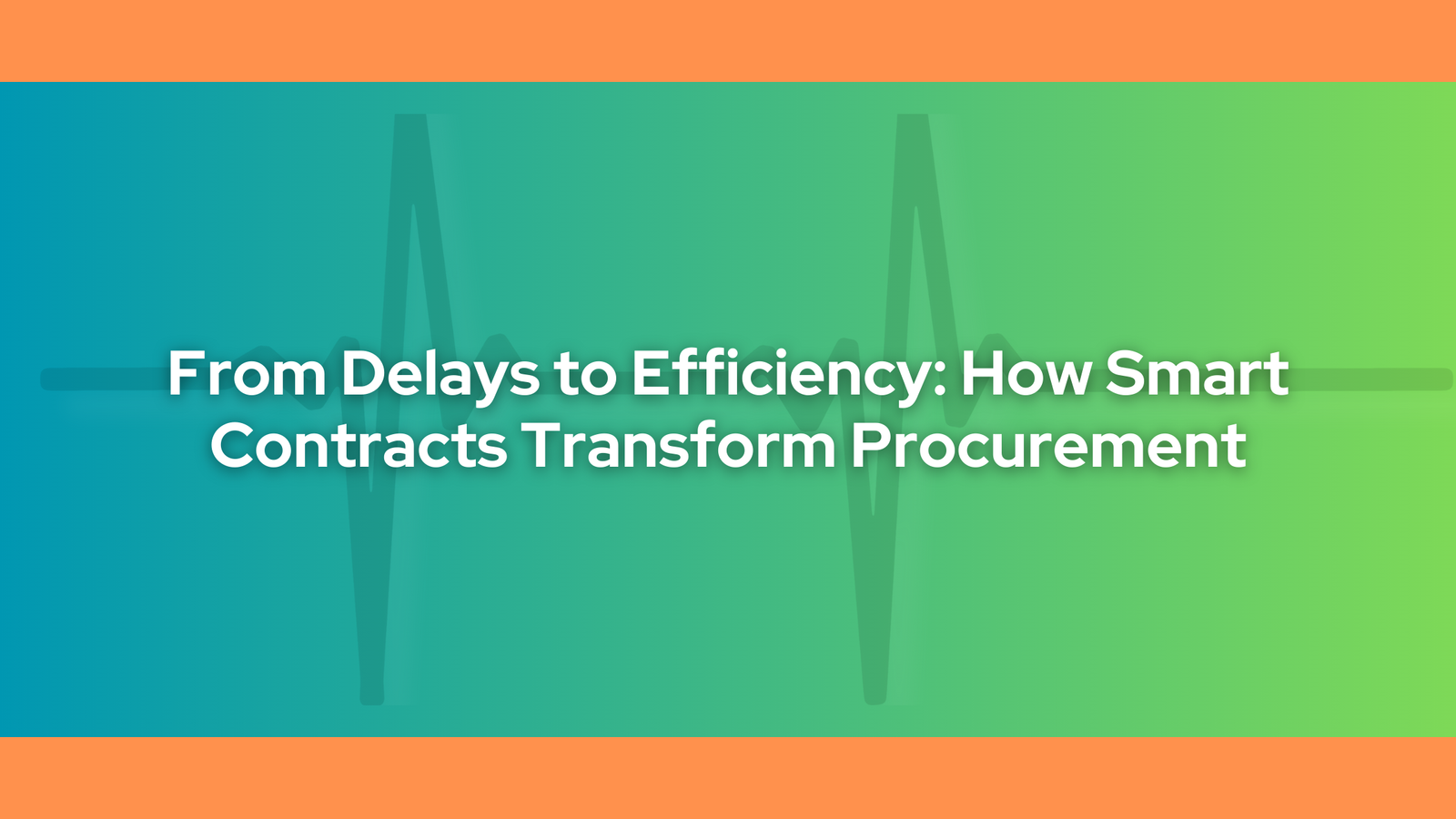
When it gets complicated to keep up in the digital world, procurement teams are also pressured to become faster, more accurate, and more transparent. With today’s supply chains requiring speed, transparency, and precision, it may be harder for traditional and manual methods to meet this demand. Enter smart contracts. Smart contracts transform procurement through blockchain-enabled automation. This program is becoming a game-changer as businesses look for more sleek and effective ways to handle vendor relationships and contractual responsibilities.
Procurement experts can eliminate fraud, cut down on delays, and speed transactions with the help of these digital agreements, which are revolutionizing the industry without compromising control or compliance.

Smart contracts are digital agreements that are self-executing and have terms written directly in code. These were first proposed by computer scientist Nick Szabo in 1994. To bring conventional transaction techniques, such as point-of-sale systems, online, Szabo defined smart contracts as digital protocols that automatically carry out contract conditions. To bring conventional transaction techniques, such as point-of-sale systems, online, Szabo defined smart contracts as digital protocols that automatically carry out contract conditions.
Smart contracts automatically perform the agreed-upon action, such as releasing payment, after predetermined circumstances are satisfied, such as confirmation of a service. Investopedia best described it as a digital vending machine: one will enter the appropriate terms, and the contract will automatically carry out the subsequent action. Because these digital agreements are transparent, enforceable, and impenetrable, they are particularly helpful in procurement settings where precision, adherence, and confidence are essential.
Because these digital agreements are transparent, enforceable, and impenetrable, they are particularly helpful in procurement settings where precision, adherence, and confidence are essential. They are revolutionary for industries that deal with intricate supplier ecosystems because they cut out the middleman, speed up processes, and minimize human error.
According to TokenMinds, there are numerous strategic advantages to using smart contracts across the procurement process. First, by minimizing manual intervention, they can automate and enforce the conditions of contracts.
Furthermore, according to Rapid Innovation, because of their transparency and immutability, blockchain-based smart contracts facilitate compliance and are often useful for audits and dispute resolution. The blockchain keeps a permanent record of every transaction, lowering the possibility of invoicing fraud and promoting compliance.
Application in the real world includes

With all of these advantages and potential, shifting towards smart contracts might be the next move. However, transitioning to smart contracts requires a strategic assessment to know if the team is ready. Procurement teams need to evaluate their level of digital maturity. It is because integrating blockchain-based applications will be easier if the team is already familiar with using cloud-based procurement platforms or ERP.
Testing the team’s technical competency is also important when shifting toward smart contracts. They should have a grasp of coding logic, blockchain principles, and the risks of poorly drafted contracts, such as loopholes or bugs. Organizations must also evaluate internal talents, make training investments, or work with reputable tech partners because these digital agreements are only as good as their code. Working with legal counsel to make sure that contract conditions are enforceable is equally crucial, particularly in nations where smart contract regulations are still developing.
It is impossible to overlook the benefits of smart contracts transforming procurement as supply chains become more intricate and global. Decision-makers now need to consider when and how to implement this technology rather than if they should. Proactive companies that take action now will establish themselves as pioneers in the next wave of procurement excellence.